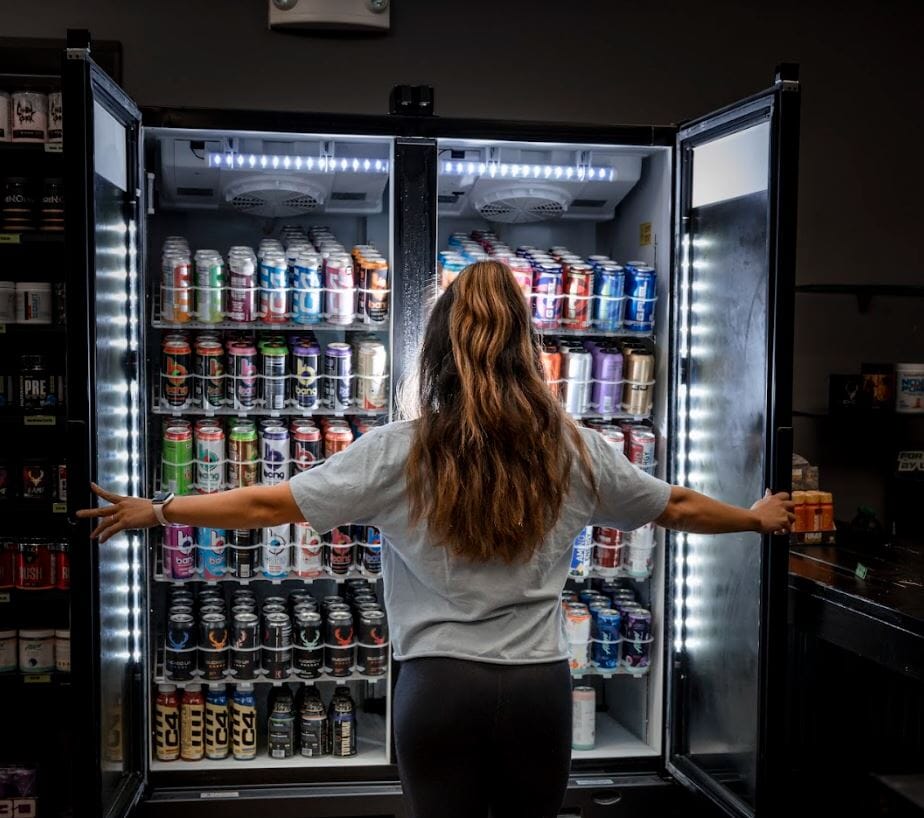Optimal Caffeine Consumption for Performance Athletes
Caffeine is one of the most consumed chemical substances in the world. According to Healthline, almost 90% of the entire United States population consumes caffeine regularly. It’s a stimulant that not only increases activity of the brain but also targets the central nervous system to reduce fatigue and drowsiness. You can consume caffeine in a wide variety of forms such as coffee, tea, energy drinks, chocolate, supplements, pre-workout, and more.
Humans have consumed caffeine in some form for thousands of years. However, only in recent decades has its effectiveness been documented in sports performance.
How does caffeine work?
One of the biggest benefits of caffeine is how quickly the body absorbs the substance. [1] Within 45-60 minutes of consumption, the body has completely absorbed caffeine into the bloodstream. It’s also at around this point that caffeine has reached its peak effectiveness. Scientists at the FDA state that the half-life of caffeine is between four to six hours. The positive effects of caffeine can vary from person to person, as it also affects muscle and fat cells in addition to the brain and central nervous system. They include the following:
- Body temp. Caffeine is known to increase heat production, aka thermogenesis, which raises body temperature and can help in burning more calories.
- Burning fat. The Journal of the International Society of Sports Nutrition found that taking caffeine 30 minutes before aerobic exercise increased fat-burning.
- Endorphins. Caffeine stimulates the release of beta-endorphins in the bloodstream resulting in that.
- Glycogen. This is the stored form of glucose and the body’s main source of energy. If you consume caffeine, it’s possible to reserve glycogen by burning fat as an energy source instead.
- Hormones. Increases circulation of epinephrine, or adrenaline, which can result in an increase in performance.
- Muscles. Through the central nervous system, caffeine may improve muscle performance.
How does caffeine affect sports performance?
Because caffeine in sports is relatively new to the scene, there are only a small number of studies on its effectiveness. But the results are pretty promising. [2] In endurance activities lasting more than 20 minutes, such as running or swimming, caffeine has proven to have a positive impact on enhancing performance by increasing time until exhaustion and work output. When it comes to strength training, the effects of caffeine are very positive. [3] A study by the Journal of the International Society of Sports Nutrition found that caffeine improved both strength and power. However, a subgroup analysis found that the ergogenic effects of caffeine consumption significantly improved maximal muscle strength in the upper body and muscle power. Yet, it had little to no effect on lower body strength output.
Do professional athletes use caffeine?
Some people have a couple of cups of coffee, an energy drink for a boost, or another form of caffeine each day. Professional athletes, on the other hand, use caffeine much more strategically. It’s known as the performance-enhancing substance of choice. In an article published in The Atlantic, American triathlete and Ironman Triathlon champion, Sarah Piampiano, discussed her pre-race caffeine strategy. Caffeine helped Piampiano get the necessary energy kick she needed to finish a marathon at the top level.
What’s the optimal amount of caffeine consumption for performance athletes?
The best dose of caffeine for performance is going to vary from person to person. Experts say that the ideal amount of caffeine should be 1.4-2.7mg per pound or 3-6mg per kg of body weight. If you’re new to supplementing caffeine, it’s important to start on the lower end of the dosage recommendation. That way, you’ll avoid any unwanted negative side effects that will inhibit your performance. These include anxiety, dizziness, increased heart rate, insomnia, irritability, stomach discomfort, and tremors.
References:
Mawer, R. (2016, March 18). How caffeine improves exercise performance. Healthline. Retrieved November 13, 2022, from https://www.healthline.com/nutrition/caffeine-and-exercise
U.S. National Library of Medicine. (n.d.). Home - books - NCBI. National Center for Biotechnology
Information. Retrieved November 13, 2022, from https://www.ncbi.nlm.nih.gov/books
Commissioner, O. of the. (n.d.). Spilling the beans: How much caffeine is too much? U.S. Food and Drug Administration. Retrieved November 13, 2022, from
https://www.fda.gov/consumers/consumer-updates/spilling-beans-how-much-caffeine-too-much
Commissioner, O. of the. (n.d.). Spilling the beans: How much caffeine is too much? U.S. Food
and Drug Administration. Retrieved November 13, 2022, from
https://www.fda.gov/consumers/consumer-updates/spilling-beans-how-much-caffeine-too-much
Ramírez-Maldonado, M., Jurado-Fasoli, L., del Coso, J., R. Ruiz, J., & Amaro-Gahete, F. J. (2021, January 7). Caffeine increases maximal fat oxidation during a graded exercise test: Is there a diurnal variation? - journal of the International Society of Sports Nutrition. BioMed Central. Retrieved November 13, 2022, from
https://jissn.biomedcentral.com/articles/10.1186/s12970-020-00400-6
MA;, B. C. A. J. (n.d.). The effect of caffeine ingestion on 8 km run performance in a field setting. Journal of sports sciences. Retrieved November 13, 2022, from
https://pubmed.ncbi.nlm.nih.gov/16492607/
Z;, G. J. T. E. T. L. B. P. (n.d.). Effects of caffeine intake on muscle strength and power: A systematic review and meta-analysis. Journal of the International Society of Sports Nutrition. Retrieved November 13, 2022, from https://pubmed.ncbi.nlm.nih.gov/29527137/
Carpenter, M. (2014, March 13). How athletes strategically use Caffeine. The Atlantic. Retrieved November 13, 2022, from https://www.theatlantic.com/health/archive/2014/03/how-athletes-
strategically-use-caffeine/283758/

